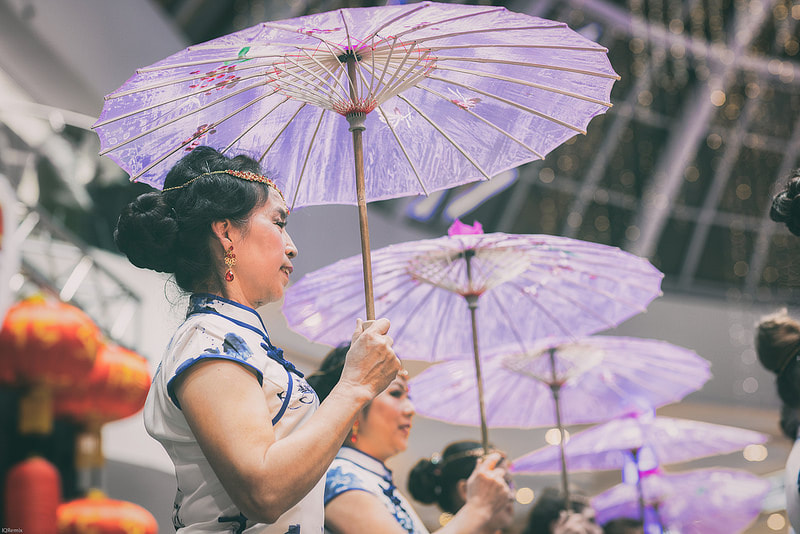| We interrupt important news about a possible breakthrough in relations with North Korea, the president’s looming trade war and the rising cost of a gallon of gasoline to bring you this important bulletin: A young woman in Utah has worn a red Chinese qipao dress to her prom. Sorry, we should have warned you to keep the children out of earshot. We know you’re gasping for air at this point, but health officials assure us they don’t expect any long-term effects. This shocking news is sure to last only until the next social distraction is revealed. |
| | Sometimes, the judgmental side of modern America’s proudly non-judgmental culture (just ask us!) is too rich — sort of like a lot of Americans, themselves. If you haven’t heard this story, you must have spent a week away from news channels and newspapers anywhere in the world. It all started when Keziah Daum, an 18-year-old student at Woods Cross High School, found a red dress at Decades Vintage Clothing in Salt Lake City. Because she was looking for a prom dress that was modest, yet attractive and unique, she bought it. The New York Times, Fox News, USA Today, ABC News and Time Magazine didn’t care about that decision until Daum posted photos on social media of herself and her friends posing in their prom apparel at the Utah State Capitol. That’s when someone named Jeremy Lam posted on Twitter, “My culture is NOT your … prom dress.” I put the dots in there, by the way, to take the place of a vulgar profanity using deity, which many religious people find offensive. That brings up some other ironies of a judgmental culture I don’t have time to address right now. His post went viral, to the tune of 42,000 retweets and 180,000 likes. Soon it seemed as if everyone was offended by the dress. Except, that is, for the Chinese, themselves. The South China Morning Post reported that people on Mainland China’s social media service WeChat were decidedly not offended. “It’s not cultural theft. It is cultural appreciation and cultural respect,” one person wrote. Another said, “There is no problem, as long as there is no malice or deliberate maligning. Chinese cultural treasures are worth spreading all over the world.” The New York Times interviewed a Hong Kong-based cultural commentator, who called the furor “ridiculous.” It also quoted another WeChat user who asked, “So does that mean when we celebrate Christmas and Halloween it’s also cultural appropriation?” The newspaper also delved into the qipao’s history itself — it was introduced by an ethnic group in China’s northeast region, then likely appropriated by the Han Chinese and finally transformed into its current body-hugging form as the result of Western influences. So … who is appropriating whom? My goodness, being judgmental can be complicated. I come at this from a perspective a bit different than that of the average aging American white guy. A decade ago, my oldest son married a Chinese woman. During a visit to them last summer, I walked through Beijing admiring the colorful qipaos I occasionally saw on young parasol-carrying women in various public places. More importantly, I have witnessed subtle differences between our two cultures. After a visit a few years ago, we said goodbye to our daughter-in-law at Salt Lake International Airport and watched helplessly as she struggled through a TSA checkpoint with bags, a stroller and two of our independent-minded young grandchildren. Nobody offered to help. Later, she told us how different it was when she arrived in China. People there noticed her struggles and rushed to her side, some even carrying her bags until she was reunited with our son. Of course there is such a thing as inappropriate and offensive cultural appropriation. Our culture used to be filled with it, as the stereotypes rampant in old movies and TV shows will attest. But for some, the over-correction from those days has landed them in a politically correct ditch. Some people may long for the days when even the most legitimately offensive or inappropriate prom behavior had zero chance of ending up in the international media, much less prompting the Times to call experts in Beijing. It may be better, however, to long for a future when our own culture, like those folks at the airport in China, emphasizes love, acceptance and a benefit of the doubt over the immediate impulse to publicly shame others. |


 RSS Feed
RSS Feed

